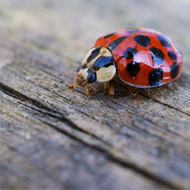
Researchers evaluate global 21st century threat
Alien species are threatening economies and livelihoods in some of the poorest nations of the world, according to new research.
The spread of non-native species already threatens global diversity and costs global economies US$1.4 trillion a year. But experts found these invasions also threaten the last remaining biodiversity strongholds in the world's most fragile economies.
Writing in the journal Nature Communications, researchers evaluated the global 21st-century threat from invasive species. They discovered that one-sixth of the global land surface is highly vulnerable to invasion.
Their study outlines how poorer economies are highly reliant on international trade and have little power to regulate imports. As a result, the introduction of highly dangerous species continues unchecked.
"Rampant globalisation will lead to invasions in countries with the least capability to deal with them. We need more international cooperation, and the US, Australia and nations in Europe to share expertise," said study leader Dr Regan Early from the University of Exeter.
Non-native species like the Harlequin ladybird and mink can transmit disease, choke river systems, prevent cattle from grazing and out-compete native species.
Increasing globalisation, particularly imports of pets and plants, has caused many biological invasions in the past. In the future, scientists believe air travel will be responsible for biological invasions of Africa and Asia.
This will be exacerbated by climate change and intensifying agriculture, which will make it easier for invasive species to become established, the researchers say.
"Developed and developing countries - especially the latter - may lack the operational infrastructure to prevent and deal with harmful introductions," said study co-author Ines Ibañez.
The researchers hope their findings will lead to governments and NGOs improving schemes to warn communities of the threats of biological invasions and provide solutions.
Image (C) Ian Kirk/Wikimedia Commons



 The BSAVA has opened submissions for the BSAVA Clinical Research Abstracts 2026.
The BSAVA has opened submissions for the BSAVA Clinical Research Abstracts 2026.